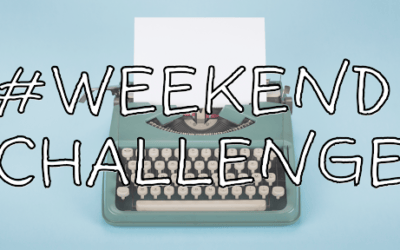How to Write a Winning Pitch
Pitch Formula
A pitch is a snappy sentence or two that summarizes your book and tells the reader why they should read it. Similar to the blurb on the back cover of a book once it is published.
Each pitch must include a few key elements from your story. Following a template can make it easy to make sure that you’re not missing anything. Once you have all the elements down, then feel free to rearrange them to express your writing style and tone of your story. Here is a fiction pitch formula to get you started.
Character wants to do something but can’t because there are obstacles. But when something drastic changes or happens, the character is able to do something and solves the problem.
(If you are writing a biography, this formula still applies. If you are writing other forms of nonfiction, you want to try and capture what the reader will learn and what the main point of the book is.)
As an example, we’ve created a fake pitch using the formula above.
When a dragon whisks away the princess, a forgetful knight follows the dragon to rescue the princess but when his stead gets spooked and he is left on foot, Ulric must remember which direction the dragon went or remain lost in the forest forever.
Let’s take the elements in this template and break them down.
Character
You want to express who the main character is and what is important about them. Instead of using your character’s name, consider using a word pairing that describes them. For example, instead of writing Ulric, you could use a forgetful knight to give a better description of who Ulric is.
Obstacles
What are the obstacles the character must overcome? You will notice that our sample pitch only has four elements in bold instead of five. That’s because the obstacle in this story is connected to the character, Ulric’s forgetfulness. The character wants to rescue the princess, but the drastic change is being left on foot. So, the obstacle becomes his inability to remember which direction to go.
Stakes
The stakes tell the reader what the character has to lose if they do not meet their goal. It tells them why they should care about the character and the obstacles they must overcome. In our example pitch, the stakes are at the end after. If he does not find his way out of the forest, he will remain lost forever. This book is more about the knight’s journey than the princess. Although on the surface, it would appear that the stakes are that the princess is in danger but that alone would not be the stake for the knight. The stakes would tie into his motivation for rescuing the princess. For example, if he was in love with the princess, then the stakes would involve losing the one he loves.
Story Voice
Your pitch should let the reader know the tone of the story. You wouldn’t want to write a funny pitch for a sad or serious book. It would give the reader the wrong impression. In our example pitch, we have sprinkled in some alliteration to try and show that our story has a light and slightly humorous tone.
Comparison Titles
Comparison titles often go hand in hand with pitches. They often follow the pitch in a query letter, and some writers choose to include them when participating in Twitter pitch events.
Comparison (“comp”) titles are a reference to another work, usually two books, that gives a sense of what your book is at its heart. The agent or editor should immediately get a sense of your book and how they would position it in the market.
Although comp titles are usually books, they don’t always need to be. A rule of thumb is to make sure at least one of your comp titles is of the same genre and medium as your book. Another rule of thumb is to try and use titles from within the last five years. This isn’t always possible. You might find the perfect title, but it’s a bit older. As long as one of the titles is recent, it will show the agent/editor that you have done your research and are familiar with the market.
When you select comp titles, you want to try and avoid best sellers or books that are unknown. By using a best seller as a comp title, you are telling the agent/editor that you anticipate your book to sell that widely. That isn’t something you could predict. It may also seem like you didn’t dig very deep into what is selling in that genre. If the book is unknown and only sold two copies on Amazon, it will send the message that your book is a huge financial risk. Publishers aren’t a fan of big risks, especially on new authors.
Now that you know how to craft a pitch, here are some tips to make your pitch stand out.
Write A Few
Even if you love your pitch, write another one. The pitch that resonates with you may not resonate with an agent/editor. There is debate whether pitches should end in a question. Some agents love questions, and others do not. Twitter pitch contests can be a great way to test out pitches. Most events allow you to pitch once in the morning and once in the afternoon. Posting a slight variation of your pitch in the morning and afternoon allows you to see which of the two gets a reaction from the writing community.
Read Other Pitches
he nice thing about reading other pitches is that, thanks to Twitter pitch events, they are easily accessible. Simply search the hashtag of the pitch event, and voila, tons of pitches at your fingertips. Here are some popular Twitter pitch hashtags.
#Pitmad – All Genres (If you are looking for a specific genre you can add additional hashtags to your search.)
#PBpitch – Picture Book Pitches
#KidlitGN – Graphic Novel Pitches
#DVpit – All Genres, Pitches from Diverse Authors.
#LGTBNpit – All Genres, Pitches from Queer, Trans, and Nonbinary authors
#PitchDis – All Genres, Pitches from Disabled authors
#APIpit – All Genres, Pitches from Asian/Pasifika writers
Get Feedback
It may feel silly to get feedback on something that is only two sentences long but in the end, you’ll be glad you did. Feedback can identify any parts in your pitch that seem unclear. Often the wrong verb choice can shift the entire mood of your pitch. If you’re a WriteStoryBooks Plus member you can utilize the Story Gallery to get feedback on your pitch.
Visual Appeal
This one only applies to Twitter pitch events. Think about how the pitch looks on the timeline. Is it just one big block of text? Play with the spacing and format to create something easy to skim and stands out in the flood of other tweets.
Conclusion
Practice makes perfect, and the same applies to writing pitches. Like anything with writing, put in the effort, and you’ll be a pitching pro in no time.
Did you find this post helpful? Let us know on Facebook or Twitter. If you enjoyed this blog, check out our post on beginning your story with a hook titled Why your story should always have a Hook.
Read our Latest Blogs
The Writer’s Guide to Social Media
Today we are talking about a topic that intimidates many writers and illustrators, social media. Good news! It doesn’t have to. The key is to choose the platform that is most enjoyable to you. The one you don’t mind spending time on and fosters authentic...
How to Win a #WeekendChallenge
Thank goodness it’s Friday, WA Community, and not just because it’s the start of the weekend. Friday’s have us happy dancing because that’s when we announce the new #WeekendChallenge prompt. The #WeekendChallenge is an opportunity to write a 100-word entry based on a...
Submitting Your Story: 7 Tips to Survive the Query Trenches
You’ve typed “the end”, received feedback, and revised your story. Congratulations, you are ready to enter the Query trenches! Whether you decide to query an agent or an editor is a personal preference but these seven survival tips will apply to both query routes....
Subscribe to our mailing list
Be the first to find our about our newest blogs, offers and news from Write Academy!






